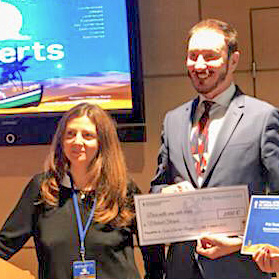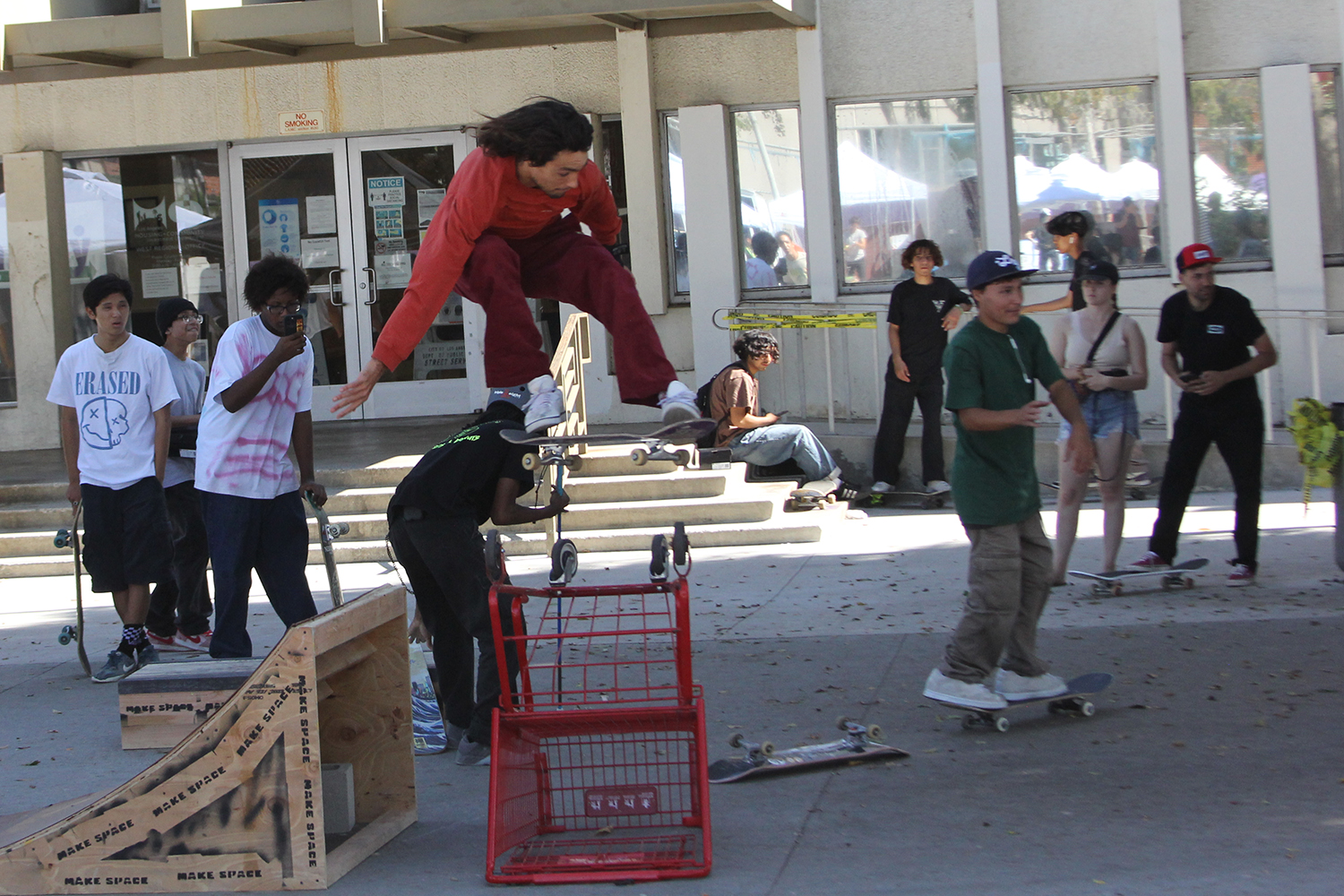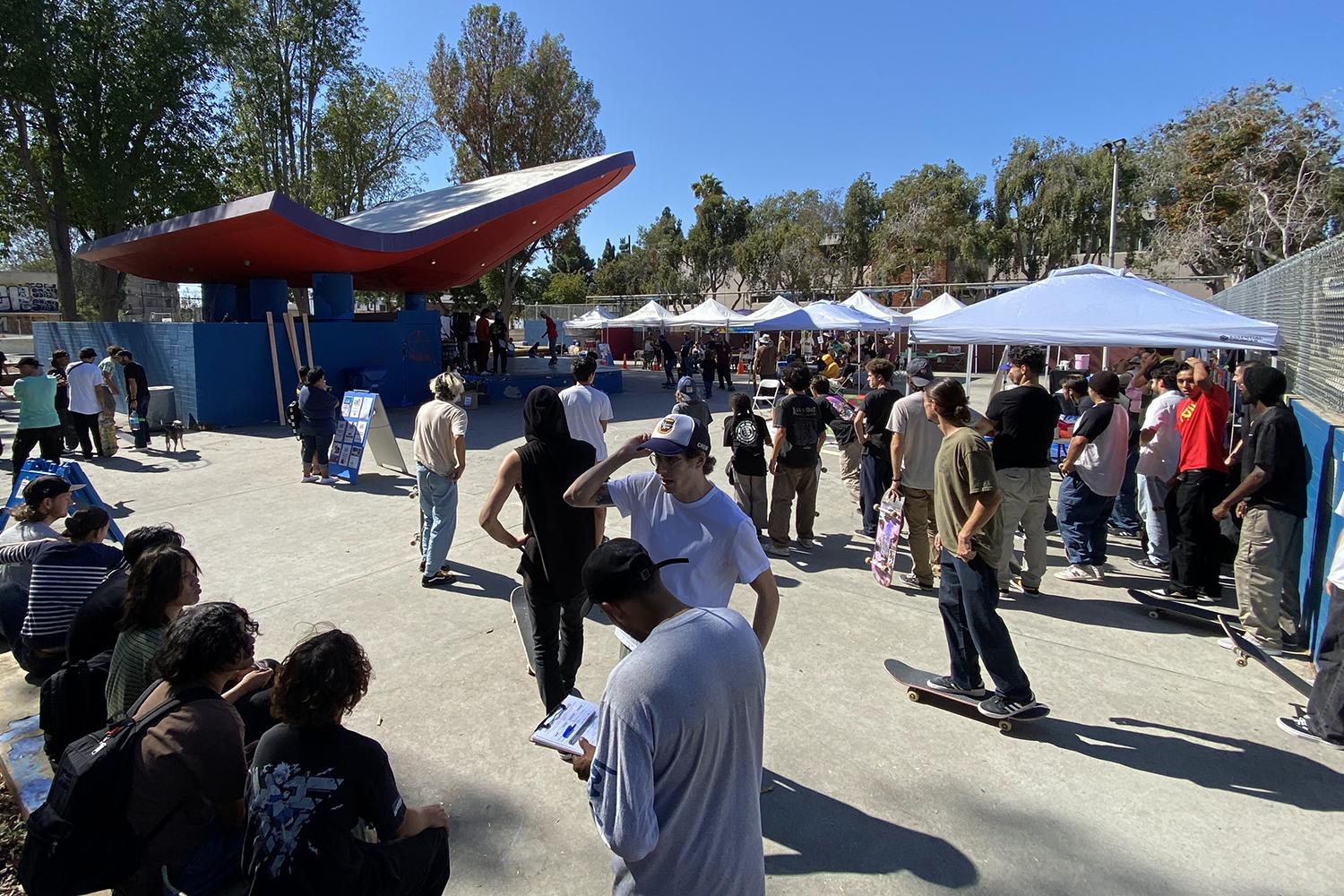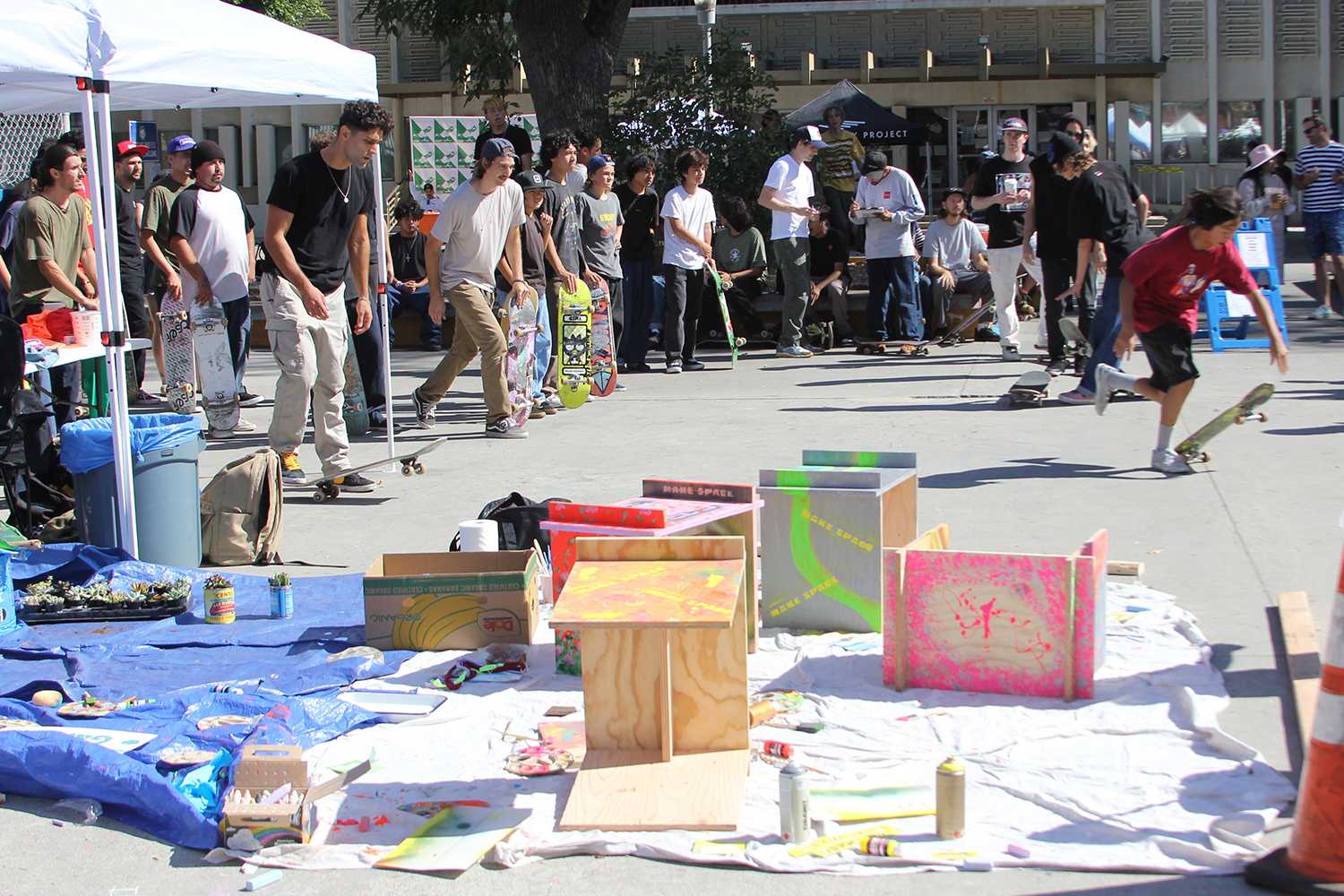By Stan Paul
Michael Storper, distinguished professor of regional and international development in urban planning and director of Global Public Affairs at UCLA Luskin, was selected by an international jury to receive the prestigious 2022 Vautrin Lud International Award for Geography.
Storper traveled to Saint-Dié-des-Vosges in northeastern France to accept the award at an Oct. 2 ceremony, part of the annual three-day International Festival of Geography founded in 1990.
The Vautrin Lud Award is typically given to a person who has made outstanding contributions to the field of geography and has achieved a wide international reputation as an outstanding scholar.
“It is always an honor to be elected by one’s peers around the world,” said Storper, who joins a select group of UCLA Luskin faculty who have earned the accolade. The late Edward Soja received the honor in 2015 and emeritus professor Allen J. Scott won in 2003.

Associate Professor Celine Vacchiani-Marcuzzo of the University of Reims Champagne-Ardenne, left, presents the Vautrin Lud Award to Michael Storper. Photo by Andrés Rodríguez-Pose
“Michael Storper’s contributions have been transformative and, in the spirit of urban planning, provide practical guidance on developing metropolitan regions around the globe,” said Chris Tilly, professor and chair of Urban Planning at UCLA Luskin.
Storper, who received his Ph.D. in geography from the University of California, Berkeley, and who has been affiliated with UCLA for four decades, is an international scholar who focuses his research and teaching on the closely linked areas of economic geography, globalization, technology, city regions and economic development.
He holds concurrent appointments in Europe, at the Institute of Political Studies (“Sciences Po”) in Paris, where he is professor of economic sociology and a member of its Center for the Sociology of Organizations; and at the London School of Economics, where he is professor of economic geography.
The Vautrin Lud Prize, created in 1991, rewards the work and research of a single distinguished geographer, identified after consultation with hundreds of researchers around the world. The prize, sometimes referred to as the “Nobel Prize in Geography,” is considered the highest international award in the field.
The annual award is named after the French scholar who was instrumental in naming America for the Florentine navigator Amerigo Vespucci, whose account of landing on the North American continent found its way to the group of Saint-Dié-des-Vosges scholars directed by Lud. In 1507, the group used Vespucci’s accounts to publish one of the earliest geographical treatises regarding the New World.
The honor adds to awards Storper has received for his decades of work and research.
The American Association of Geographers awarded Storper its Distinguished Scholarship Honors for 2017, and he received the 2016 Gold Founder’s Medal from the Royal Geographical Society (with the Institute of British Geographers).
Storper, co-author of the 2015 book, “The Rise and Decline of Urban Economies: Lessons from Los Angeles and San Francisco,” was previously named to the Thomson Reuters list of the World’s Most Influential Scientific Minds of 2014. In 2012, he was elected to the British Academy and received the Regional Studies Association’s award for overall achievement as well as the Sir Peter Hall Award in the House of Commons. He also holds an honorary doctorate from the University of Utrecht in the Netherlands.










